Dr. Andrew Sodergren Reflects on, Explains, & Applies Pope St. John Paul II’s “Theology of the Body” to Contemporary Issues.
Archive of an extended series of articles written to introduce the Theology of the Body.
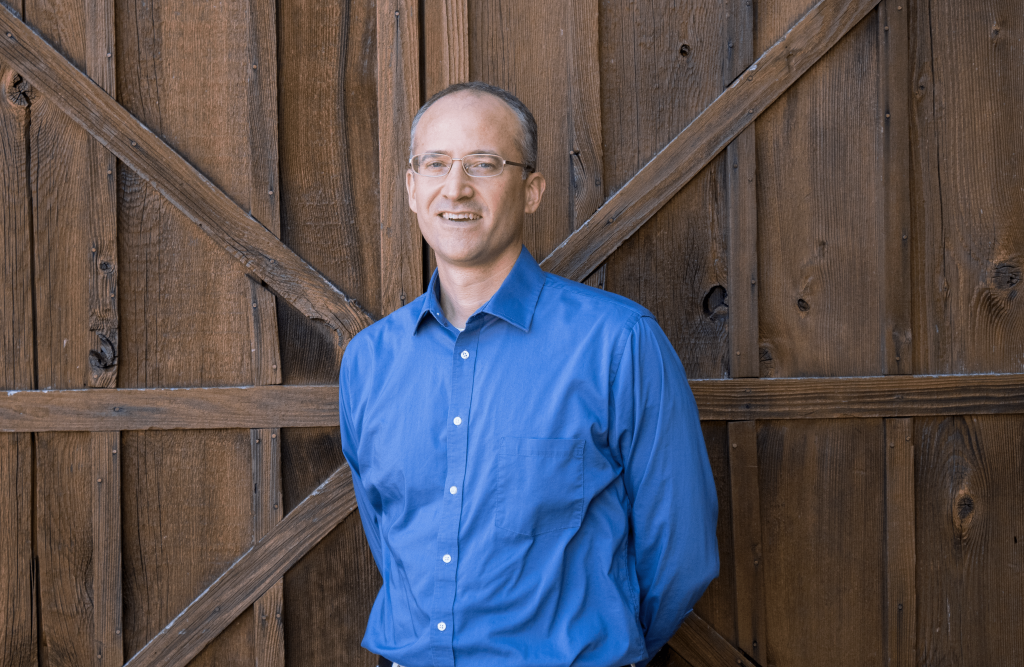

#1: What is “Theology of the Body” [& Why Is It Important]?
By Dr. Andrew Sodergren
Have you heard of “Theology of the Body?” This term has gotten quite a bit of attention in Catholic circles in recent years, but many people do not understand what it is or why it is relevant for them. While this is completely understandable, my hope is that by the time you finish this article, you will have a clear picture of what we conveniently refer to as “TOB” and even a desire to learn more of it.
#2: Original What??? John Paul II on “Original Experiences”
By Dr. Andrew Sodergren
In Theology of the Body, Pope St. John Paul II sought out to answer difficult, contemporary questions pertaining to marriage and sexual ethics. However, in order to do so, he believed that one has to first establish what he called an “adequate anthropology.”
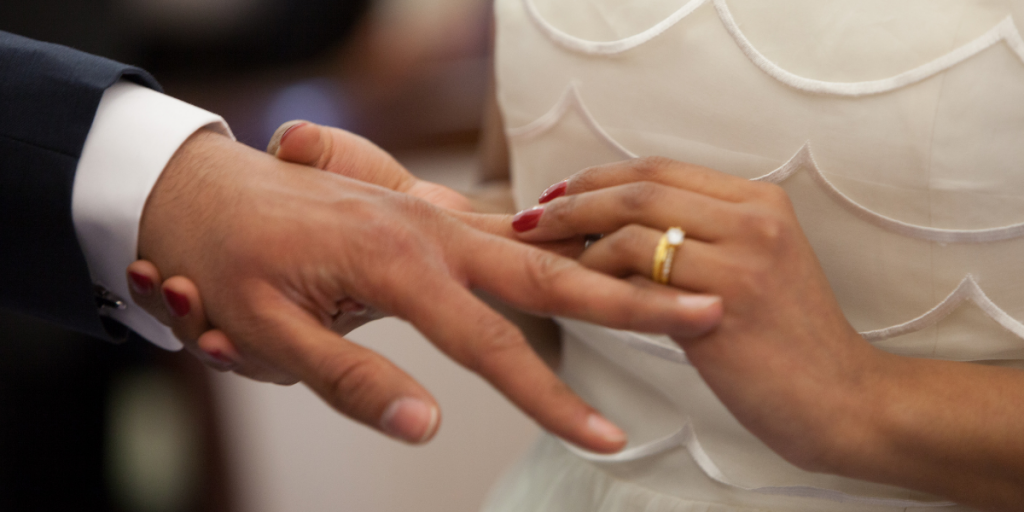

#3: On Original Solitude
By Dr. Andrew Sodergren
In my last article, I introduced Pope St. John Paul II’s concept of “original experiences.” He coined this term while pondering the opening pages of the book of Genesis in light of human experience. The first of the original experiences he probed is original solitude.
#4: Original Solitude Part 2: The Sacrament of the Body
By Dr. Andrew Sodergren
Last month, I wrote about how the concept of original solitude in Pope St. John Paul II’s Theology of the Body applies to both the man and the woman in Genesis 2. Indeed, original solitude — like each of the “original experiences” — applies to us all as it reflects fundamental aspects of what it means to be human. Let’s dive deeper into this aspect of our humanity.


#5: Original Unity Part 1: Flesh of My Flesh
By Dr. Andrew Sodergren
In previous articles, we saw how Pope St. John Paul II used the term “original solitude” to refer to the human search for identity. As we interact with the world around us seeking answers to fundamental questions about who we are and why we are here, we discover that we are alone among bodily creatures. This is so because only the human body reveals a person — a free, rational subject capable of self-awareness and self-determination.
#6: Original Unity Part 2: The Sexual Difference
By Dr. Andrew Sodergren
Last month, we began to explore the second of the “original experiences” described by Pope St. John Paul II: original unity. We saw how God created woman to be a “help” to man. In their first encounter, the man rejoiced, “This at last is bone of my bone and flesh of my flesh” (Gen 2:23a).


#7: Original Unity Part 3: The Call to Communion
By Dr. Andrew Sodergren
In recent articles, I have reflected on Pope St. John Paul II’s concept of original unity. Reflecting on Genesis 2, the pope drew our attention to our own experience of being male or female. This sexual difference inserts a duality in our humanity. As I discussed in prior articles, man and woman both possess the fullness of human nature, but they have and express that nature differently by way of their maleness or femaleness. It is as if male and female are two modes of being human.
#8: Original Unity Part 4: Imago Trinitatis
By Dr. Andrew Sodergren
In last month’s article, I mentioned how Pope St. John Paul II saw in the unity and distinction of our humanity as male and female a profound truth about what it means to be made in the “image of God.” Indeed, Genesis 1:27 tells us, “God created man in his own image, in the image of God he created him; male and female he created them.” John Paul II saw the second half of this verse (“male and female he created them”) as revealing something about the first half (i.e., what it means to be the image of God). Let’s unpack this connection.


#9: Original Nakedness: Seeing as God Sees
By Dr. Andrew Sodergren
I began several months ago to explore the three “original experiences” Pope St. John Paul II pondered in his Theology of the Body. In these reflections, we have seen that the original experiences reveal fundamental truths about who we are as human persons (identity) and how we are called to live (vocation). Through original solitude, we discovered that we alone in the visible world are embodied persons, capable of self-awareness and self-determination, existing in a unique relationship with God as his sons and daughters, and are called to freely partner with Him in His divine plan.
#10: Original Nakedness: Receiving One Another as Gifts
By Dr. Andrew Sodergren
Last month, I introduced Pope St. John Paul II’s concept of original nakedness. In that reflection, we saw that our first parents “were both naked, and were not ashamed” (Gen 2:25). According to the saintly pope, this lack of shame corresponded to a fullness of interior freedom they felt in one another’s presence. By virtue of original innocence, by which the man and woman were untainted by sin and filled with God’s grace, they were able to behold each other “with all the peace of the interior gaze” (TOB 13.1).


#11: Gift, Self-gift, and the Meaning of Life — Part 1
By Dr. Andrew Sodergren
For several months, I have been reflecting in these articles on the “original experiences” explored by Pope St. John Paul II in his Theology of the Body. Before moving on to other aspects of TOB, I want to ponder the crucial theme of gift, which is like a golden thread woven throughout the late pope’s work.
#12: Gift, Self-gift, and the Meaning of Life — Part 2
By Dr. Andrew Sodergren
Last month, I reflected on the logic of gift and how it is a golden thread woven throughout Pope St. John Paul II’s thought, especially his Theology of the Body. We saw how all of creation, including man, depends on God’s loving gift of existence at every moment. We also saw how the logic of gift even describes the inner life of God Himself who is an eternal exchange of love between Father, Son, and Holy Spirit.


#13: Gift, Self-gift, and the Meaning of Life — Part 3: The Spousal Meaning of the Body
By Dr. Andrew Sodergren
We saw in previous reflections that all of creation is a gift held in being at every moment by God, whose inner life is an eternal giving and receiving of Love. Since the very meaning of our existence is gift, and we are made in the image of God who is Love, the fulfillment of our being and existence is to give ourselves away in love (i.e., self-gift). When we make a “total” gift of self, we give our whole selves — body, soul, past, present, and future — to another. This most complete form of self-gift is properly called “spousal,” and the proper “place” for this spousal gift is marriage.
#14: Knowledge, Procreation, & the Primordial Sacrament
By Dr. Andrew Sodergren
In recent articles, we have reflected on the logic of gift and the spousal meaning of the body. We saw that our very existence is a gift from God that He lovingly gives us at every moment. We also saw that the dignity of man, made in God’s image, requires that every human person always be received and treasured as a gift. When we are welcomed and accepted in this way, we discover our “giftness,” thus “finding” ourselves (i.e., discovering our true dignity).


#15: An Integral Vision of Man
By Dr. Andrew Sodergren
For many months now, we have been exploring Pope St. John Paul II’s reflections on “original man” (i.e., man and woman before the Fall). We have pondered original solitude, original unity, and original nakedness as well as the logic of gift, the spousal meaning of the body, and marriage as the primordial sacrament. Before we go on to the next major topic of TOB, it may be useful to revisit the overall purpose and structure of the late pope’s reflections.
#16: The Four Harmonies
By Dr. Andrew Sodergren
Up to this point, our reflections have focused on God’s original plan for humanity as manifest in the state and experiences of our first parents in the beginning. Their experiences are part of what Pope St. John Paul II referred to as our “theological pre-history” (TOB 4:1-3). Human history as we know it began with the Fall of man, which we call original sin.


#17: The Tragedy of Sin — Part 1
By Dr. Andrew Sodergren
In last month’s reflection, we explored the state of our first parents at the beginning of time, which was marked by what I call the Four Harmonies — between man and God, within man himself, between one another, and with the rest of creation. When we reflect on our own experiences, we quickly discover that, for each of us, these relationships are not marked by persistent harmony but in fact, significant disharmony. This difference is the clearest indication that we exist in a different state than our first parents. The primordial event that separates them from us and radically changed the state of our humanity is what we refer to as original sin.
#18: The Tragedy of Sin — Part 2
By Dr. Andrew Sodergren
As we began to explore last time, at the beginning of human history, there was a fundamental break from the state of original innocence enjoyed by our first parents, who enjoyed harmony within themselves, in their friendship with God, in relationship with each other, and in relation to the rest of creation. The “ancient serpent, who is called the Devil and Satan, the deceiver of the whole world” (Rev 12:9) succeeded in inducing our first parents to sin by sowing seeds of doubt into their minds and hearts. Let’s dig deeper into the nature of this temptation and see what relevance it has for us today.

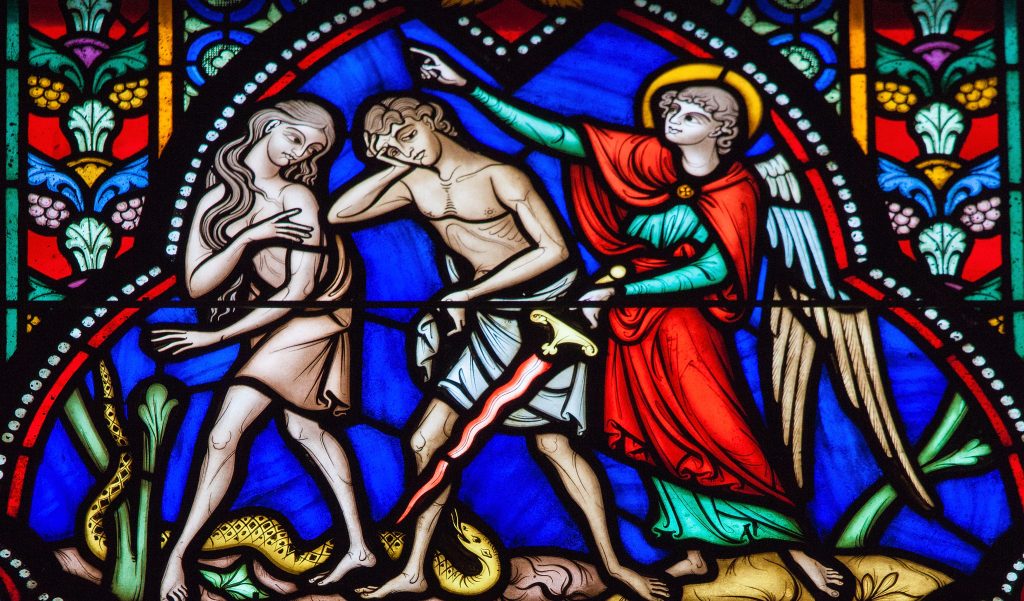
#19: The Wounds of Sin
By Dr. Andrew Sodergren
In our last two reflections, we have explored the nature of the sin that occurred at the beginning of human history when Satan tempted our first parents to mistrust their Creator and seek to supplant Him. Being deceived, they grasped at divinity, thinking they could determine right from wrong and become gods themselves. In so doing, they broke faith with God, rejected their creaturely status, and allowed sin to enter the visible world. Let us reflect on the effects that this original sin had on our first parents and continues to have on their children.
#20: Original Shame — Part 1
By Dr. Andrew Sodergren
As we have been exploring the nature and effects of original sin on humanity, it is now time to plunge into the reality of shame with the help of Pope St. John Paul II. We could hope for no better guide. As a poet, pastor, philosopher, and theologian, he reflected deeply on the experience of shame. In Theology of the Body alone, he used the term “shame” 136 times and another closely related term 33 times. He also wrote an extensive reflection on “the metaphysics of shame” in his prior book Love and Responsibility. Let’s see what we can learn from his insights.


#21: Original Shame — Part 2
By Dr. Andrew Sodergren
As described in my previous article, Pope St. John Paul II regarded the emergence of shame in the wake of the original sin committed by our first parents as a “boundary experience” that demarcates original man and historical man. Prior to this experience, man and woman were naked and felt no shame, but after their rebellion and fall from grace, they hid themselves from God and from each other. Last month, we looked especially on the impact of original shame on man’s relationship with God. Let’s now look at how it has impacted the relationship between the sexes.
#22: Original Shame — Part 3
By Dr. Andrew Sodergren
With their fall from grace, our first parents experienced a decisive shift in their relationship marked by what I have been referring to as original shame. In my last article, I discussed how this experience emerged because of the new state of internal and interpersonal disharmony in which the man and woman found themselves. Original sin caused a weakening of “control of the soul’s spiritual faculties over the body” and brought about “tensions” between man and woman, “their relations henceforth marked by lust and domination” (CCC, 400). Catholic tradition refers to this inner state of disorder that leads to lust and domination, which we all inherit, as concupiscence.


#23: The Problem of Shamelessness
By Dr. Andrew Sodergren
In recent articles, we have explored the emergence of shame in our first parents and all subsequent human beings after original sin. We saw how the emergence of concupiscence results in the experience of reciprocal shame by man and woman, which moves us to conceal the sexual features of our bodies from one another. Because concupiscence has been born in man’s heart, we are aware that when we look on each other’s bodies, we do not easily and immediately see the person in his or her fullness. Our eyes have, in a sense, been darkened by sin such that our vision may only take in the exterior features of the body, which we judge and evaluate as to the potential pleasure or usefulness it may bring.
#24: Why All The Fuss Over Porn?
By Dr. Andrew Sodergren
Last month, I raised the problem of shamelessness and how, in the face of concupiscence, a healthy sense of shame is essential in preserving the dignity of the human body and sexuality. Attitudes and behavior marked by shamelessness lead to an exaggerated emphasis on the sexual features of the human body and strips away the personal meaning of human sexuality. Shamelessness reduces the human person to a mere object to be used and discarded by others and even a commodity to be bought and sold. Pornography is the most prominent example of shamelessness today.


#25: The Toxic Nature of Porn
By Dr. Andrew Sodergren
While recently discussing the issue of “shamelessness” in this series, I identified pornography as the most prevalent example in today’s culture. Last month, I began to answer the question of why should we make such a fuss over porn by pointing out how omnipresent it has become. Now I will discuss how psychological research shows us just how toxic porn is to the human person.
#26: Porn Addiction: Enslaved to a Lie
By Dr. Andrew Sodergren
In the last couple of articles, I have been exploring the scourge of pornography as a prime example of the problem of “shamelessness.” I previously discussed how porn is omnipresent today, toxic to body and soul, and, in this article, I will highlight its addictive nature.
For many years, medical and mental health professionals thought of “addiction” as only applicable to consuming chemical substances. However, in recent years, neuroscience has helped our understanding of addiction to evolve.
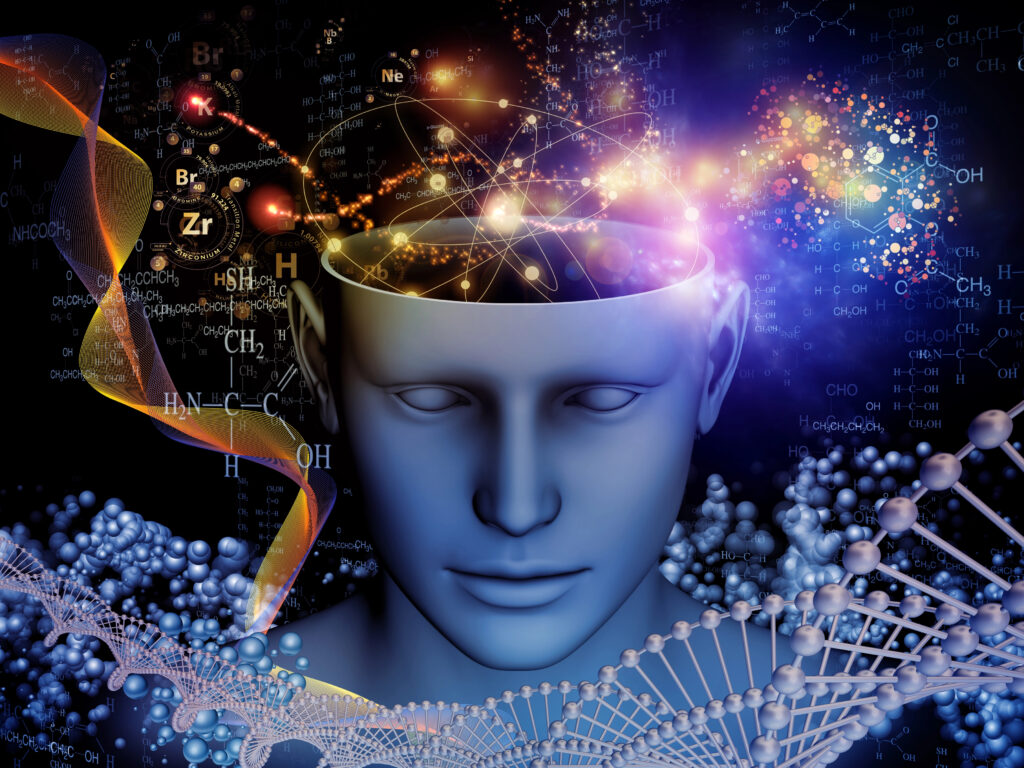
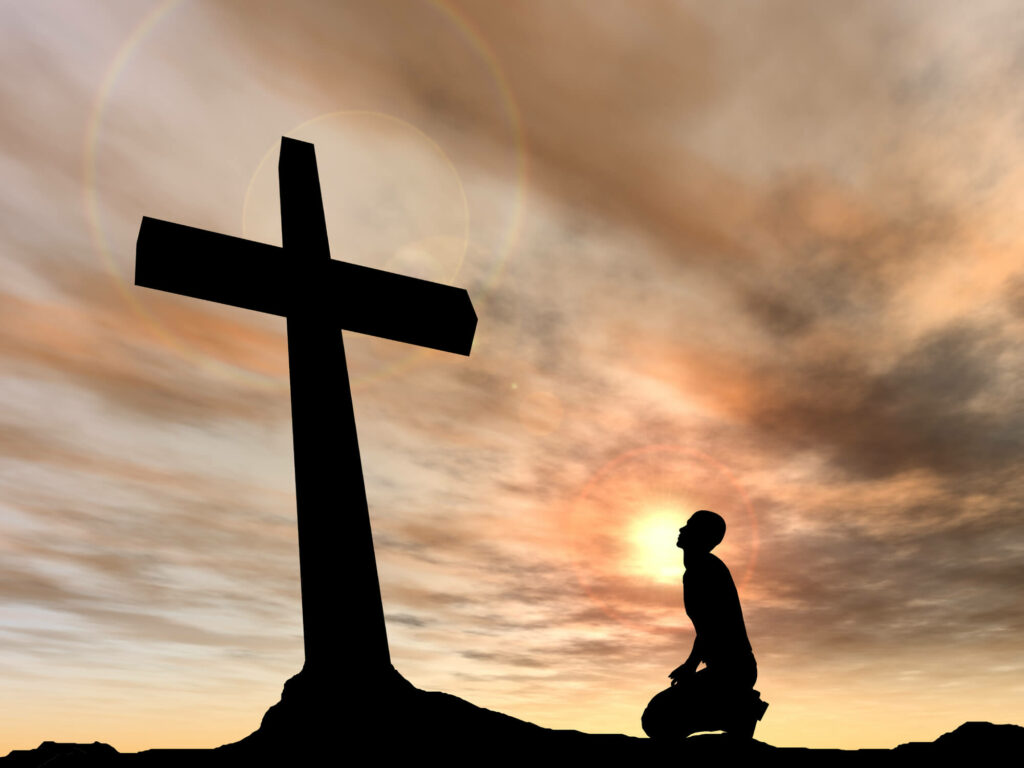
#27: Redeemed and Called by Christ
By Dr. Andrew Sodergren
For the last several months of our journey through TOB, we have explored the effects of our first parents’ fall from grace. We explored the nature of their sin and how it disrupted the harmony they previously experienced with God, within themselves, with each other, and with the rest of creation. As a result, concupiscence (i.e., disordered desire) and shame became hallmarks of our human experience. Having reviewed the various aspects and causes of shame as well as its positive, protective value in a fallen world, we delved into the problem of shamelessness and the most notorious example of shamelessness today — pornography. It is now time, with the help of Pope St. John Paul II, to shift our gaze from our origin and fall to our redemption and call to glory.
#28: The Gift of the Moral Law
By Dr. Andrew Sodergren
In the second major part of TOB, Pope St. John Paul II guides us in exploring the implications of our redemption in Christ and the moral teaching of the New Testament for the relationship between the sexes and our call to spousal love. Before we can delve into this teaching, it is helpful to pause and ponder an essential but overlooked question: What is the purpose of the moral law?

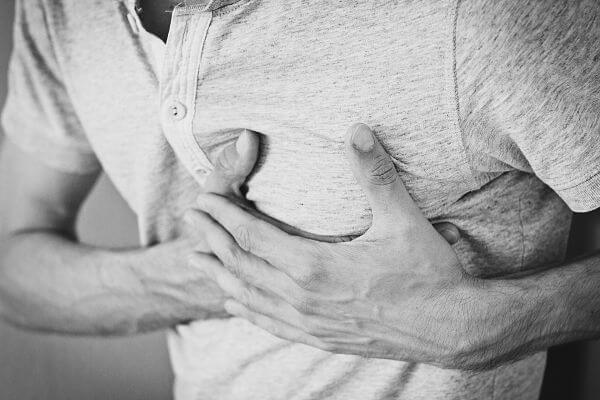
#29: The Law of the Heart
By Dr. Andrew Sodergren
By taking on our human nature in the Incarnation, Jesus, the eternal Son of the Father, united himself intimately with us. He did this in order to save us from sin, to reveal the Father and His love, to give us an example of holiness to follow, and ultimately, to enable us to share in the divine life of the Blessed Trinity (see CCC, 457-460). In his Theology of the Body, Pope St. John Paul II was especially interested in the implications of our redemption in Christ, the New Law of the Gospel, and our call to holiness for how we regard our bodies, our sexuality, and how we relate with one another. To help us enter into his reflections, we first pondered the universal call to holiness and the purpose of the moral law. We saw that with the grace that Christ won for us — and continually supplies through His bride, the Church — sanctity is not only possible for each and every one of us but is the standard of life for every Christian.
#30: Adultery of the Heart — Part 1
By Dr. Andrew Sodergren
Jesus came not to abolish the law and the prophets but to fulfill them (Matt 5:17). Through His teaching and example, the Lord has called us, His disciples, to a level of sanctity that goes beyond what the Old Law prescribed: “For I tell you, unless your righteousness exceeds that of the scribes and Pharisees, you will never enter the kingdom of heaven” (Matt 5:20). External conformity to the demands of the moral law is not sufficient. Jesus desires not only our exterior obedience, but even more, our interior conversion of heart.


#31: Adultery of the Heart — Part 2
By Dr. Andrew Sodergren
In the Sermon on the Mount, Jesus taught, “You have heard that it was said, ‘You shall not commit adultery.’ But I say to you that every one who looks at a woman lustfully has already committed adultery with her in his heart” (Mt 5:27-28). Let us continue to ponder the meaning of adultery of the heart with the guidance of Pope St. John Paul II’s Theology of the Body.
#32: Adultery of the Heart — Part 3
By Dr. Andrew Sodergren
The New Law of the Gospel given to us by Christ calls us to conversion of heart. External conformity to the moral law is not sufficient. God desires the whole person to be transformed such that good moral acts flow naturally from a heart made new by the Holy Spirit.


#33: The Body and Purity of Heart
By Dr. Andrew Sodergren
In Matthew 5:27-28, Jesus reaffirmed the sixth commandment and brought it to fulfillment by teaching that one must not only refrain from overt acts of adultery but also the interior act of adultery in the heart. As we saw last month, this adultery in the heart consists of looking at another in a reduced way, seeing his/her body merely as an object by which I might satisfy my sexual urge. When I allow myself to look at and think about others in this way, I fail to regard them as persons made in God’s image and possessing inestimable dignity.
#34: The Call to Purity: An Echo of the Beginning
By Dr. Andrew Sodergren
In recent months, we have reflected on Christ’s words in Matthew 5:27-28 in which he condemned interior acts of lust, equating them with adultery committed in the heart. Pope St. John Paul II taught that this sin can even be committed within marriage if spouses look at each other as a mere “object for the possible satisfaction of his own sexual ‘urge’” (TOB 43:3). This teaching in no way reflects a condemnation of the body or of human sexuality but rather holds them up as “a value not sufficiently appreciated” (45:3).

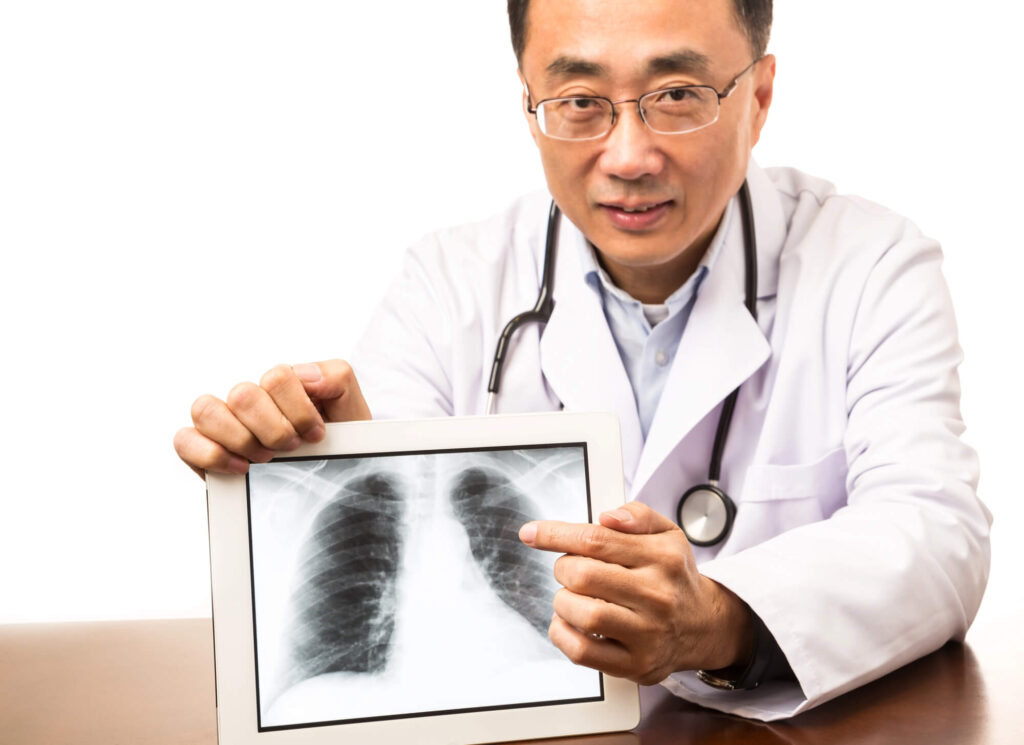
#35: Purity, the Flesh, and the Spirit
By Dr. Andrew Sodergren
Central to Jesus’ moral teaching, which I have referred to as the New Law of the Gospel, is His appeal to the human heart. In his Theology of the Body (TOB), Pope St. John Paul II meditated deeply on this interior turn and its implications for men and women as sexual beings.
#36: The Body and Life According to the Spirit
By Dr. Andrew Sodergren
In his effort to show us the true meaning of “purity of heart,” Pope St. John Paul II first meditated on the words of Christ in the gospels before pondering the teaching of St. Paul. As we saw last month, St. Paul speaks of life according to the flesh versus life according to the Spirit. However, this opposition in no way implies a condemnation of the body. Indeed, human nature is comprised of the unity of body and soul, both of which are inherently good as created by God.

MORE INFO
Director of Ruah Woods Psychological Services
Dr. Sodergren holds Masters and Doctoral degrees in clinical psychology from Divine Mercy University’s Institute for the Psychological Sciences (IPS), the only graduate school in existence devoted to integrating the best of psychological science with a Catholic view of the human person. His doctoral dissertation, completed in 2009, was entitled “Attachment and Morality: A Catholic Perspective.” Dr. Sodergren established Ruah Woods Psychological Services in 2011.
His previous clinical work was with the Alpha Omega Clinic in Bethesda, MD and with Catholic Social Services of Southern Nebraska. Dr. Sodergren is trained in child, adult, marital/family, and group therapies as well as psychological testing, including vocational assessment for candidates to the priesthood or religious life. He is certified in Relationship Enhancement® couples therapy and has received advanced training in Emotionally Focused Couples Therapy. He is an active member of the Catholic Psychotherapy Association and is a frequent speaker for professional and lay audiences on topics involving the integration of psychology and the Catholic faith.
For 13 years, he co-taught a course on psychology and neuroscience as an Adjunct Professor at the John Paul II Institute for Studies on Marriage and Family in Washington, DC. In 2022, Dr. Sodergren contributed a chapter on the “Psychology of the Sexual Difference” to the book Sexual Identity: The Harmony of Philosophy, Science, and Revelation published by the St. Paul Center. He previously contributed a chapter on forgiveness in marriage to the book Torn Asunder: Children, the Myth of the Good Divorce, and the Recovery of Origins. In 2023, Dr. Sodergren received the Mother of Good Counsel Clinical Excellence Award from the Catholic Psychotherapy Association.
The Preeminence of Theology of the Body
Who Am I? Discovering Our Identity in Christ (27 min video keynote address)
Gender Dysphoria as a Symptom of a Deeper Distress (9 min radio interview)